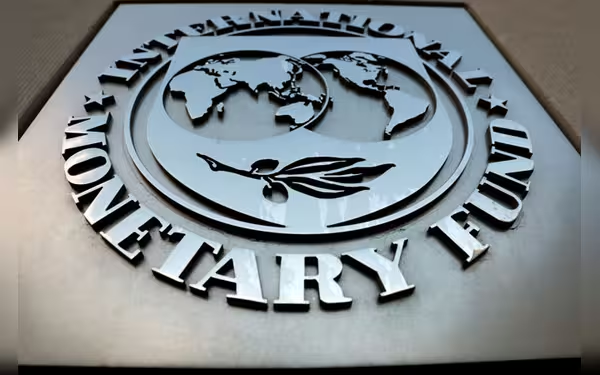Saturday, November 16, 2024 07:57 PM
IMF Highlights Pakistan's Economic Progress Amidst Ongoing Challenges
- IMF approves $7 billion Extended Fund Facility for Pakistan.
- Pakistan's vulnerabilities and structural challenges remain significant.
- Investment levels in Pakistan are notably low compared to peers.
 Image Credits: dailytimes_pk
Image Credits: dailytimes_pkThe IMF reports on Pakistan's economic progress, highlighting challenges and the need for reforms despite recent financial support.
The International Monetary Fund (IMF) recently released a statement highlighting the economic situation in Pakistan. While the government has made some strides towards restoring economic stability, the IMF pointed out that the country still faces significant vulnerabilities and structural challenges. This assessment comes after the IMF Executive Board approved a substantial $7 billion, 37-month Extended Fund Facility (EFF) for Pakistan, aimed at supporting its economic recovery.
According to the IMF, Pakistan's business environment is challenging, with weak governance and a large role of the state acting as barriers to investment. The report emphasized that investment levels in Pakistan are notably low compared to other countries, and the tax base is too narrow. This narrow tax base hampers tax fairness and fiscal sustainability, making it difficult for the government to meet its social and development spending needs.
The IMF's approval of the Extended Fund Facility allows for an immediate disbursement of approximately $1 billion. This financial support is crucial for Pakistan as it seeks to stabilize its economy. The IMF acknowledged that the country has taken important steps to restore economic stability, particularly through consistent policy implementation under the 2023-24 Stand-by Arrangement (SBA). The report noted a rebound in growth, with an increase of 2.4% in FY24, largely driven by agricultural activity. Additionally, inflation has significantly decreased, falling to single digits, thanks to tight fiscal and monetary policies.
Furthermore, the IMF highlighted that a stable current account and calm foreign exchange market conditions have allowed Pakistan to rebuild its reserve buffers. The State Bank of Pakistan has also been able to reduce the policy rate by a total of 450 basis points since June, which is a positive sign for the economy.
However, despite these positive developments, the IMF warned that Pakistan's vulnerabilities and structural challenges remain formidable. The report pointed out that spending on health and education has been insufficient to address persistent poverty, and inadequate infrastructure investment has limited the country's economic potential. Moreover, Pakistan is particularly vulnerable to the impacts of climate change, which poses additional risks to its economic stability.
The IMF stressed the importance of a concerted adjustment and reform effort to prevent Pakistan from falling further behind its peers. The authorities are now focusing on several key areas to address these challenges. These include rebuilding policy-making credibility, broadening the tax base, advancing reforms to strengthen competition, and improving public service provision and energy sector viability.
While Pakistan has made notable progress in restoring economic stability, the road ahead is fraught with challenges. The IMF's insights serve as a reminder that sustained efforts are necessary to build resilience and enable sustainable growth. As the government embarks on this journey, it is crucial to prioritize investments in health, education, and infrastructure to ensure a brighter future for all Pakistanis. Only through comprehensive reforms and a commitment to addressing these structural issues can Pakistan hope to achieve lasting economic stability and growth.













